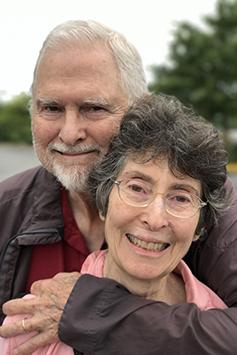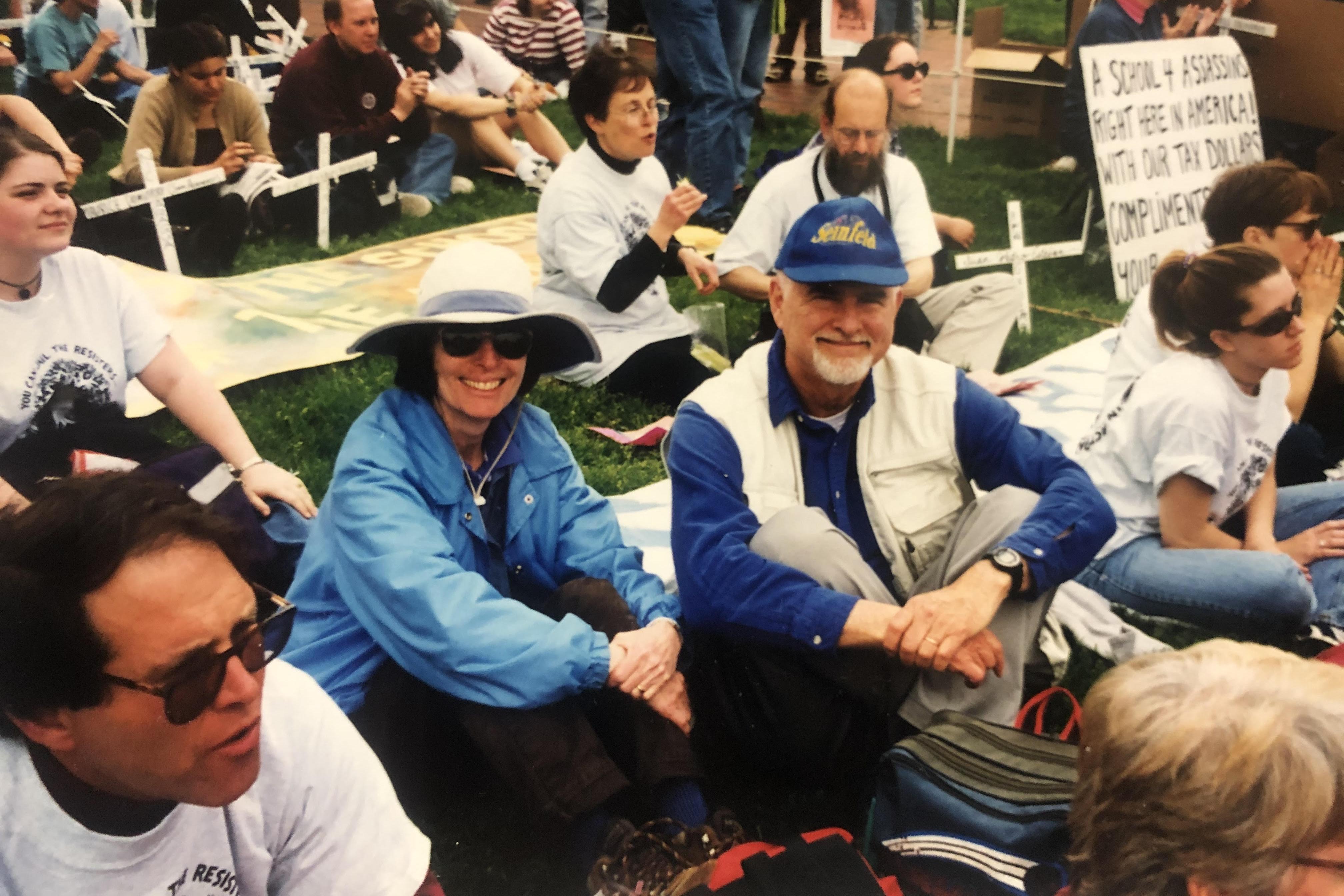Q&A with Phyllis Brody Taylor ’63

Last fall, Phyllis Brody Taylor ’63 captivated attendees of the Arcadia Alumni Round Table Talk: Women Who Lead. Discussing her involvement with the Freedom Rides while at Beaver College in 1961, Brody Taylor revealed to the community that there is much more to her story.
Brody Taylor has committed her whole life to fighting injustices in the U.S. and around the world. She has worked professionally as a community organizer, a hospice nurse, a bereavement facilitator, and an advocate in correctional settings. Drawing from her own experiences as an inmate after peaceful protesting and as a survivor of assault, she became a correctional chaplain and a victim support specialist. Her justice work has taken her to Nicaragua as a founding member of Witness for Peace, the Soviet Union as part of a Journey of Compassions delegation, and across the United States as a Board Member of Amnesty International USA. Alongside her husband of 58 years, she has facilitated non-violent training and has written many articles and chapters in books. Taylor has committed her life’s work to social justice, health care, end-of-life, and corrections issues.
Q: How did you first hear about Freedom Rides when you were a Beaver College student?
A: In 1961, the Freedom Rides were garnering international attention. e newspapers were lled with headlines about these civil rights activists, many of whom were college students like me, facing arrests, assaults, and brutal violence for peacefully protesting segregation in the South.
Q: Why did you decide to get involved?
A: My advocacy work always goes back to what has happened throughout history when “the good people” have been silent. I was born into a Jewish immigrant family in 1941, my grandparents immigrated from Eastern Europe to escape antisemitism, and I grew up reading and relating to Anne Frank. Often I would wonder, where were all the good people during the Holocaust? I vowed to never fall into that category of “good people” who saw gross injustice and did nothing. During the Freedom Rides era of the civil rights movement, I was a student at Beaver College and one of only three Sociology majors of that time. My fellow classmate Carol Rogoff Hallstrom ’63 and I both felt compelled to join the Freedom Rides—to be the good people society needed. At the Freedom House on Girard Avenue in Philadelphia, which was one of the only places where whites and blacks could get together, we received the necessary training and our group’s assignment.
Q: Were you scared or worried about how you saw Freedom Riders being treated?
A: I wasn’t scared, but I was realistic. A group of us were trained together and received our assignment together, so none of us were alone in our mission and that was key. We all were very much aware of the need for justice, and during that stage of our lives, we knew what we were willing to risk and willing to endure to achieve it.
I have found with the Freedom Rides, and particularly in the work that I have done later in my life within war zones, that there is, however, always a sense of naivety that comes with the camaraderie of the group. You don’t always recognize the full impact of what could have happened.
Q: How did your education and early advocacy work inform your personal and professional lives?
A: I like to think that every moment of my life has been interconnected and has happened for a reason. Initially, I wanted to become a nurse, but according to my parents, “good Jewish girls don’t become nurses,” so I majored in Sociology and studied under Dr. Norman Johnston ’97H. We went to a prison in New Jersey as part of Dr. Johnston’s class where I first witnessed the injustices within our correctional system. That first exposure to prison reality and my own incarcerations have informed my advocacy work within the corrections system. To this day, I continue to center my work in corrections around healthcare, advocacy, and racism, which all relate back to Dr. Johnston’s class.
Another Beaver College professor who profoundly influenced my life was Philosophy professor Dr. Siu-Chi Huang. She gave us one of the most reflective assignments of my life: write about your philosophy on life. I realized that my philosophy on life is all about how you confront not only all the wonderful parts, but also the di cult parts. This greatly influenced a lot of what I do.

Last, but certainly not least, Beaver College led me to my husband and fellow justice worker, Richard “Dick” Taylor. As part of my senior year eld placement at the Fellowship Commission on housing and racial discrimination, I attended a meeting and met Dick, who was director of the Fair Housing Council of Delaware Valley. It was a whirlwind romance. We met in October, were engaged in December, and were married during my Spring Break. We came from two very different family systems: He drove a Volkswagen and I was brought up to never own anything German; I had long hair, was involved in the Freedom Rides, and his family thought I was a hippie. Yet, we shared the same philosophy on life, and that was what mattered. Together, we continue to live an incredible life and have three children: our son, who is homemade (biologically ours), a daughter who is the biological child of a Korean woman and a U.S. soldier, and the third person we consider our daughter is a woman who joined our family 30 years ago when she came to the U.S. as a young adult.
Q: How did your justice work change with family life?
A: Through our 58 years together, Dick and I have stood against injustice in so many ways, and often, it became a family affair. We worked within the local community to ght racial and housing discrimination. During the Vietnam War, we went as a family to demonstrations and met so many other wonderful families along the way. We, along with other families and individuals, co-founded a community in West Philadelphia committed to non-violence and social change: the Philadelphia Life Center, which was part of the Movement for a New Society. Through our travels, Dick and I spent time in El Salvador, Guatemala, and rural Mexico, where we witnessed racism on an international scale. From then on, fighting racism around the world became part of our mission, and we co-founded Witness for Peace, a solidarity network that seeks to promote peace, justice, and to help change U.S. foreign policy during the Contra war.
Q: Many of the injustices you stood against years ago are still relevant today. How do you fi nd the motivation to keep moving forward?
A: Through my experiences, I feel that I have looked at racism in its ugly face as much as a white person can, and still, I don’t presume to fully understand. I realize that I never can, but what I can do is always find my purpose and use my experience to help and empower others to become involved in the work for justice.
Q: How can others get involved?
A: I have had a wonderfully diverse life, but what I want to get across is that while my experiences have been dramatic, that doesn’t mean that I am more committed to social justice than others involved in this work. My intent is never to elevate what I have done in my life, but rather inspire others to not be silent. From teaching and volunteering to writing letters and attending peaceful demonstrations, there are so many simple but important things everybody can do, no matter their age, background, or financial situation. My advice: find your comfort level. Never become complacent or so discouraged that you shut down and become unaware of the heroism or suffering around you. Take on new experiences, ask questions, and become interested. I guarantee that you will become aware of your privileges in life and recognize your obligation to make a difference.


